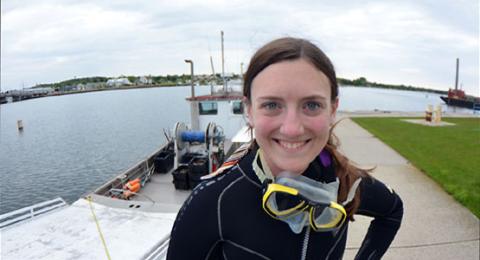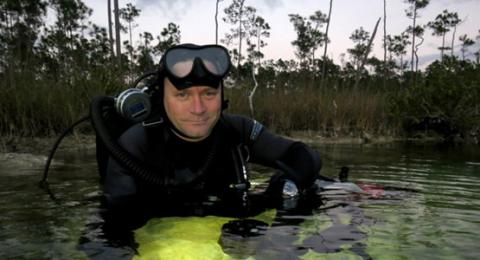There are many jobs in the field of marine science that do not fit into the categories of marine biology, oceanography, ocean engineering or social and policy science. Instead, these jobs may fit more than one category, or they may overlap other fields, such as education, communication or business. Many of these jobs are highly specialized and require very different educational backgrounds, experiences and skills.
Some characteristics shared by people in virtually all marine-related careers include a love of the marine environment, a respect for the way the ocean works, and a sense of curiosity. Many people in the various fields of marine science like the sense of pioneering discovery, given the fact that much remains to be learned about the way the ocean works and the organisms that inhabit it. Others describe a feeling of accomplishment or satisfaction about their work, knowing that being involved in their field has or will make a difference for present and future generations.
During an internship, Melissa Brogle discovered, "I really enjoyed recruiting passionate volunteers, teaching them about our programs, and using my knowledge and skills to help a group of people make a large impact on our environment and community." So she changed career direction from research to volunteer coordination to work with people who want to make a positive difference in the marine environment.
There are countless possibilities for a marine-related career: marine educator, science writer, filmmaker, photographer, ecotourism guide, park ranger, beach superintendent, maritime or environmental lawyer, aquavet (veterinarians that specialize in marine or aquatic animals), marine archaeologist, marine historian, fundraiser or spokesperson, aquaculturist, manager of an agency specializing in marine or freshwater issues, marina manager, ship's captain or mate, environmental planner, manager of a land conservation organization or land trust, botanist, computer specialist with a marine or environmental organization, ecologist, hatchery specialist, landscape or maritime architect, and so on.
While we certainly won't attempt to list all of the possibilities, it's probably safe to say that your career can combine your interest in the ocean or freshwater with many other fields, hobbies or specialties.
If you like to write and you have a love for the water, ocean or environment, a career in environmental reporting, science or technical writing, communications, or public relations may be worth exploring. If you are a "people person," enjoy teaching and public speaking, and don't mind working long hours, a career in marine education may be for you. Even in the field of education, you can choose between formal education (a classroom or academic setting) and informal education (for example, aquaria, museums, nature or science centers, parks or wildlife refuges). If you love fish and have considered a career as a doctor, perhaps you should consider becoming an aquavet or an aquaculture veterinarian as Myron Kebus did.
When thinking about careers, work environment is an important factor to consider. Marine-related job opportunities exist in virtually every setting: within government, private industry, academia (schools, colleges, universities), business and non-profit organizations, to name a few. The positions available may be similar, but the actual day-to-day responsibilities can differ greatly, depending on which avenue you choose. For example, a ship captain could choose to work for the federal government commanding a U.S. Navy ship, for a private oceanographic research institution commanding a research vessel, or for a museum or aquarium commanding a visitors tour boat. While the job title may be similar, the job description could vary greatly.
And, don't forget, the best job will be one that combines your interests and skills. Consider what makes you happy. Do you like: working independently or being around others? working at your own pace or in a more structured environment? flexible hours or a typical work day with a lunch hour, paid vacations and sick time? traveling or staying close to home? supervising and leading others or reporting to a supervisor? working in a team setting or by yourself? being outdoors in all weather conditions, inside at a desk, or a combination? Having a career that makes you feel good about yourself and your responsibilities is very important. After all, it wouldn't be enjoyable to get up and go to work every day if you didn't like what you were doing.




